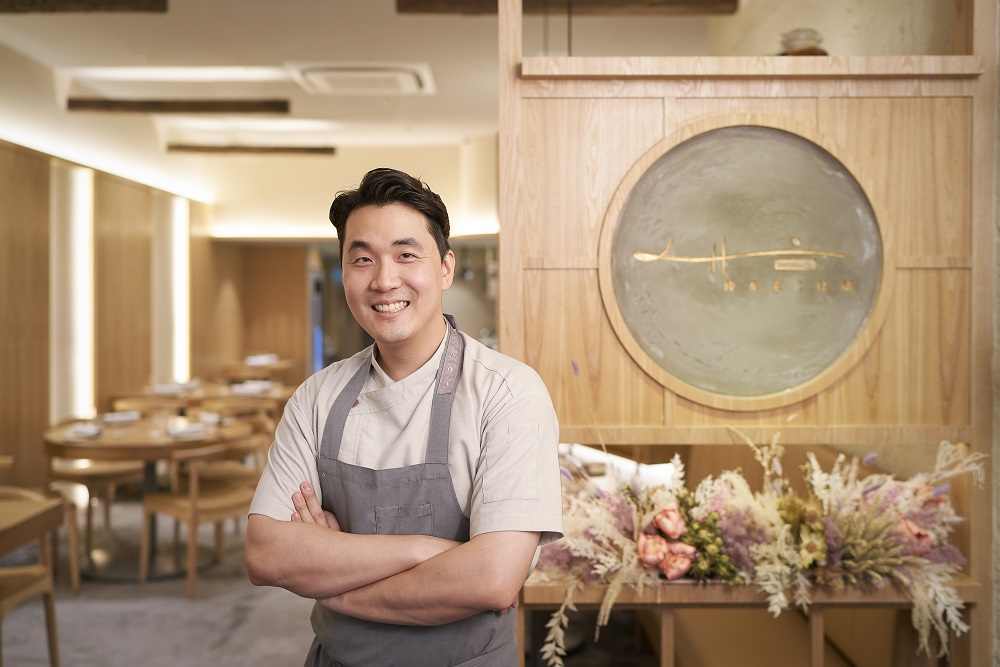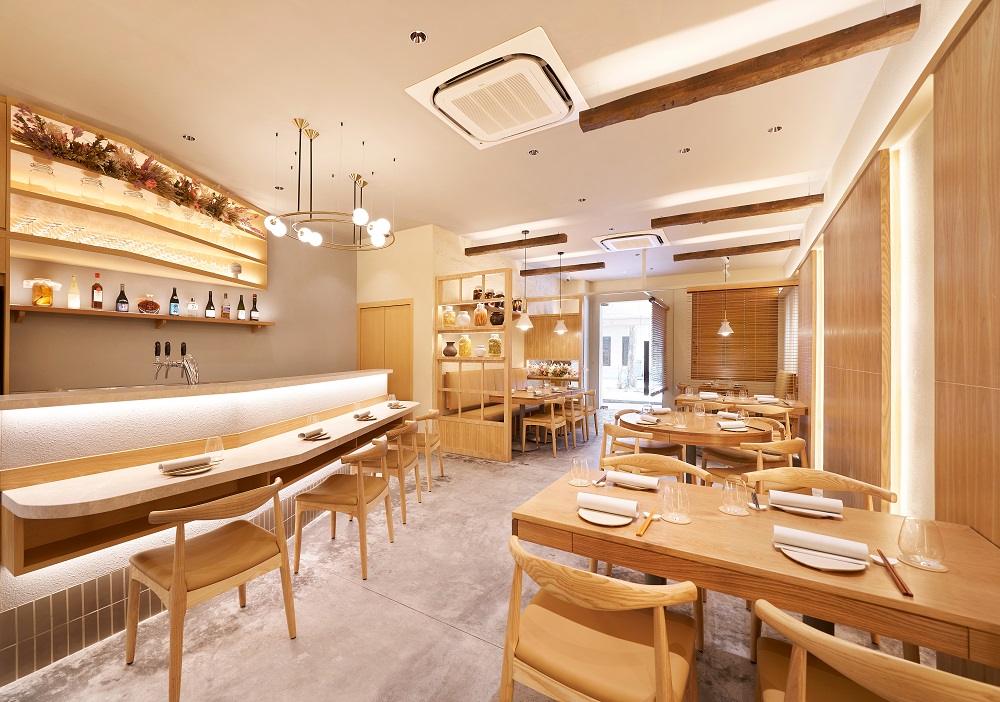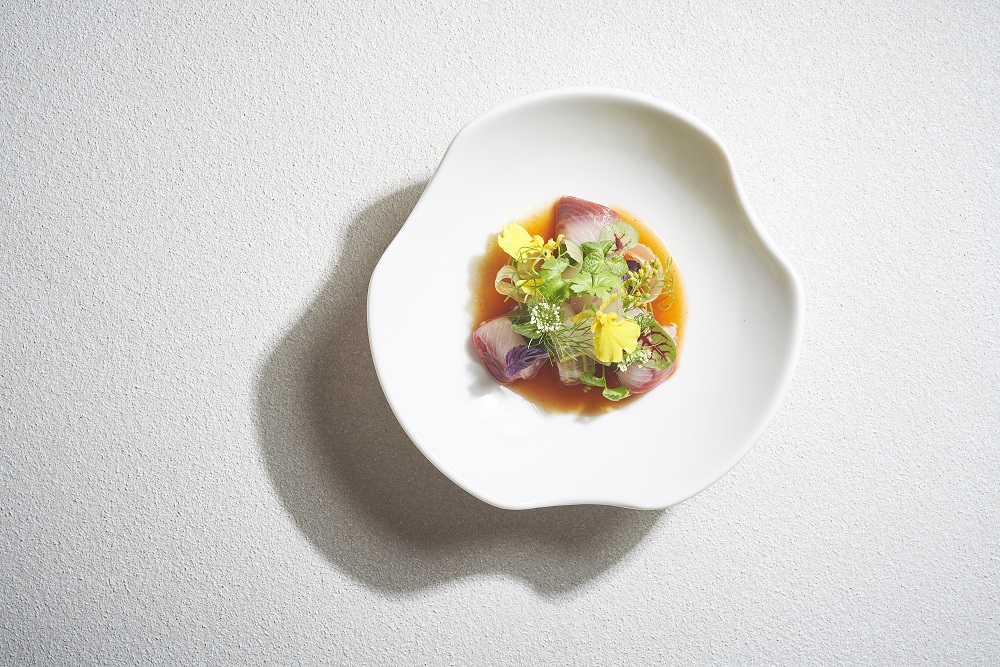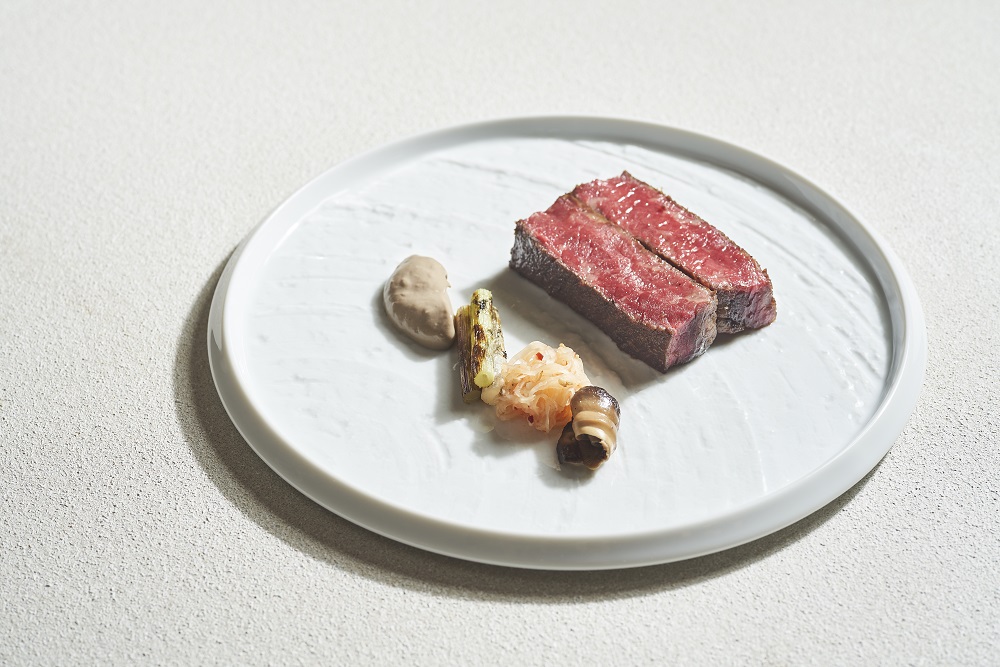Louis Han, chef founder of Nae:um, recounts how his experiences and upbringing have moulded his own version of contemporary Seoul cuisine.
_credit-john-heng_da-photographer.jpg)
Seoul-born chef Louis Han grew up in fast-paced, trendy and forward-looking district Gangnam, and was already training in the kitchens by the age of 17. Now at just 31 years, the talented chef has opened his own restaurant Nae:um, showcasing a personal cooking style he calls contemporary Seoul cuisine, a combination of western techniques with heritage Korean flavours.
At Nae:um, the progressive vibrancy of Seoul meets the flavours of folk traditions but with an international appeal. Because Han believes that people relate to one another when they share a common experience such as the bond of food, his episodic menus showcase different food stories inspired by his own personal journey. Though it references the city, Han’s offerings at Nae:um are not typical food from Seoul or an interpretation of Korean classics. Instead, it’s his take on showcasing the culinary diversity of Seoul, going beyond Korean provincial flavours to embrace the city’s international influences while simultaneously blending old and new.
With 14 years of culinary experience under his belt, Han started his training in western kitchens. At 20, he volunteered to serve with the United Nations Peacekeeping force in Lebanon, where he prepared international cuisines for military officers and dignitaries. He then returned home to Marco Polo, a Mediterranean fine-dining restaurant at Grand Intercontinental Hotel, Seoul. It was there that he had the opportunity to work with world-renowned chefs such as Joan Roca and Alain Passard when they starred as guest chefs at the restaurant.

After a stint at the Italian fine-dining Circo Abu Dhabi, Han returned to South Korea after six years to rekindle his connection with his roots, the Korean food culture and his heritage, marking a new chapter in his renewal and self-discovery, as he reconnected with his traditions and approach to food. While he took on the role as sous chef at the prestigious two-Michelin-starred Mosu, he also picked up pottery and tended a home farm to develop a deeper understanding and appreciation of Korea’s seasonal produce.
In January 2016, Han arrived in Singapore to join Meta’s opening team as sous chef. Serving classic French-inspired cuisine with an Asian twist, he emerged as a finalist in the San Pellegrino Young Chef Award Southeast Asian leg and semifinalist later that year. Late 2017 saw Han take on the role of head chef at Kimme, where he focussed on innovative, modern Korean cuisine. Close to two years later, he became head chef at Kimme, focusing on innovative modern Korean cuisine. During his tenure, the restaurant received multiple awards, and he was a finalist for the 2019 World Gourmet Summit Rising Chef of the Year.
And now through the 28-seater Nae:um in Telok Ayer, Han shows his passion as a heartfelt ode to the gastronomy of his home city by evoking memories of Korea. His grandmother’s secret recipe for gochujang, the different types of kimchi he makes, and the sauces and Korean liquors are all part of his nostalgic episodic menus that showcase his favourite ingredients.
What does Nae:um mean to you personally?
Nae:um is a Korean literary prose which means nostalgic scent. In a similar way, I want to serve my customers innovative dishes with a sense of familiarity, in hope that it conjures lingering memories through our food.

What inspires you – childhood memories, Korean street food, global influences and/or Korean heritage?
I was born and bred in Gangnam. It is a Seoul district where a hodgepodge of global cultures intermingle and are woven with Korean heritage. It is this exposure, coupled with the multicultural experiences from my work abroad, that have influenced my cooking style of combining Western techniques with Korean heritage flavours. In Singapore, there are many authentic Korean restaurants, so I would like to share with my customers a different side to Korean cooking. Instead of reworking Korean classics, the food at Nae:um is best described as contemporary Seoul cuisine, reflecting Seoul’s culinary diversity in not just provincial Korean, but also international influences, and a blend of the old and new. Just like how Seoul draws the best produce from around Korea, we also source the best ingredients and showcase them in innovative dishes with new, complementary flavours.
How does each of your episodic menus represent a specific phase in your life?
Each episodic menu showcases a different food story or inspiration in my personal journey. Episode 1, like all pilots, should be memorable to both my customers and I, so I have chosen to feature my favourite ingredients. These are the ingredients that I grew up with, grew to love, and now, fortunate enough to be able to work with every day even though I’m away from Korea. Each episode runs for about three months, and I am currently working on the R&D for Episode 2.

How familiar is Singapore with Korean cuisine and flavours?
The Korean food that most Singaporeans are familiar with are the ones seen on Korean dramas, such as army stew, tteokbokki, fried chicken, as well as Korean barbecue. So most Korean restaurants in Singapore offer these to adapt to local tastes and preferences. Elevated Korean cuisine is not often top of mind especially with the many options and cuisines available in the local dining scene.
What would you like to teach your diners about Korea through your cooking?
I have no intention of teaching my diners, but I would like to showcase another side of Korean cooking with my contemporary Seoul cuisine that is modelled after the modern dining scene in Korea where global influences and heritage flavours come together. Korea’s modern dining scene has many chefs that have been trained overseas, and they have developed their own way of cooking that feels very fusion, but somehow still retains elements of Korean heritage cuisine. That is what I want to do here as well.
